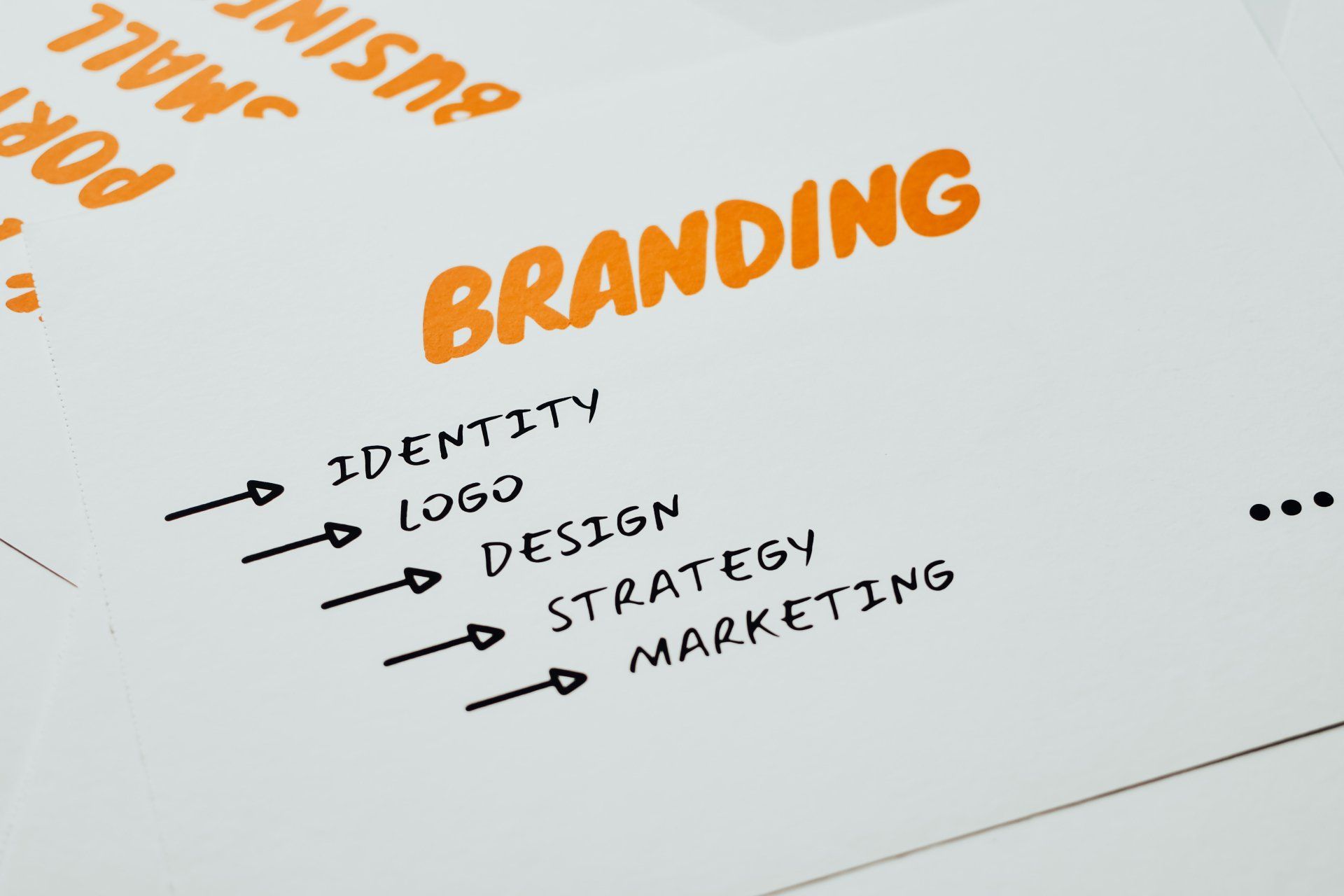Building a Visual Language: The Significance of a Well-Defined Brand Design and Guidelines for Your Business
AJ Oberlender

A powerful and cohesive brand design is critical for businesses aiming to make a lasting impression, foster customer loyalty, and differentiate themselves from competitors. Developing a well-defined brand design and brand guidelines is a strategic investment that can lead to substantial long-term benefits. In this article, we will explore the reasons why your business needs a well-defined brand design and brand guidelines, and how partnering with an experienced agency can help you achieve this.
- Establishing a Memorable Identity: A well-defined brand design enables your business to create a memorable identity that sets you apart from your competitors. Consistent use of colors, fonts, and imagery across all touchpoints helps establish brand recognition, ensuring that your audience can easily identify and remember your brand. Working with an experienced agency can help you develop a distinctive brand identity that reflects your company’s values and resonates with your target audience.
- Fostering Trust and Credibility: An effective brand design conveys professionalism and quality, building trust and credibility with your customers. A consistent and well-thought-out brand design signals to potential customers that you are a reliable and reputable company committed to delivering exceptional products or services. By collaborating with a skilled agency, you can create a cohesive brand design that instills confidence and enhances your credibility in the market.
- Enhancing Customer Loyalty: A well-defined brand design evokes emotional connections with your audience, helping to build customer loyalty and encourage repeat business. By consistently delivering a unified brand experience across all customer touchpoints, you can foster a sense of familiarity and attachment that keeps customers coming back for more. A professional agency can help you develop a brand design that not only reflects your company’s values but also resonates with your customers on an emotional level.
- Simplifying Decision-Making: A strong brand design simplifies the decision-making process for your customers. In a crowded marketplace, a well-defined brand design makes it easier for customers to recognize and choose your products or services over those of your competitors. By partnering with an agency like Zossoz, you can create a visually appealing and easily identifiable brand design that simplifies the decision-making process for your target audience.
- Facilitating Brand Expansion: A cohesive and adaptable brand design allows for seamless brand expansion and adaptation to new markets or product lines. A well-defined brand design acts as a foundation for growth, enabling you to maintain brand consistency and recognition even as your business evolves. Working with a team of professionals can help you develop a flexible brand design that supports your growth and expansion goals.
- Streamlining Marketing Efforts: An effective brand design streamlines your marketing efforts by providing a cohesive visual language and messaging across all channels. This consistency ensures that your marketing campaigns are more impactful and memorable, ultimately leading to increased brand awareness and customer engagement. By partnering with an agency like Zossoz, you can create a unified brand design that amplifies your marketing efforts and drives results.
- Implementing Brand Guidelines:
Developing and maintaining brand guidelines is essential for ensuring consistency and cohesion across all aspects of your business. These guidelines provide a comprehensive framework for your team and external partners to follow, covering everything from logo usage and typography to color palettes and messaging. By working with a professional agency, you can establish clear and effective brand guidelines that preserve your brand identity and maintain consistency throughout your organization.
By AJ Oberlender
•
February 26, 2025
Elevate your brand with our tailored web design templates. Enhance user experience and create effective branding that captivates your audience today!

By AJ Oberlender
•
October 29, 2023
In the realm of marketing, where competition is fierce, and attention spans are fleeting, how do you make your brand stand out? How do you not only grab your audience’s attention but hold it, engage it, and convert it into tangible business growth? The answer lies in one of humanity’s oldest practices: storytelling. Welcome to the world of brand storytelling. Brand Storytelling: The Ultimate Catalyst for Audience Engagement Before we delve into the mechanics of brand storytelling, it is vital to understand what it encompasses. Simply put, brand storytelling is the cohesive narrative that weaves together the facts and feelings associated with your brand. It’s not merely what you sell; it’s why you sell it, who you are, your mission, your vision, your values, and the unique journey that has led you to where you are today. It’s your brand identity presented in a relatable, human way. But why is brand storytelling so powerful? Well, the secret lies in its ability to forge an emotional connection with the audience. As human beings, we are wired for stories. Stories move us, inspire us, make us feel part of something larger than ourselves. They help us understand complex ideas, evoke emotions, and compel us to act. By telling your brand’s story, you tap into this primal power, captivating your audience and fostering a deeper, more meaningful engagement with your brand. The Brand Identity Nexus Brand storytelling and brand identity are two sides of the same coin. Your brand identity is the unique set of characteristics that distinguish your brand from others. It encompasses your brand’s personality, values, ethos, and unique selling proposition. In contrast, brand storytelling is the art of expressing this identity in a compelling narrative. As such, a strong brand story starts with a well-defined brand identity. It answers critical questions such as: Who are you as a brand? What do you stand for? What are your values and how do they align with your audience’s values? What is your brand’s personality, and how does it reflect in your offerings, interactions, and communications? What is your brand’s unique selling proposition? Your brand story then takes these elements and weaves them into a narrative that your audience can connect with emotionally. It moves beyond sterile facts and statistics and imbues your brand with life and personality. Content Marketing: The Vehicle for Your Brand Story Once you’ve crafted your brand story, the next step is to share it with the world, and this is where content marketing comes in. Content marketing is the strategic marketing approach focused on creating and distributing valuable, relevant, and consistent content to attract and retain a clearly defined audience – ultimately, to drive profitable customer action. The key to effective content marketing lies in offering value to the audience. This goes beyond merely pitching your products or services and delves into providing useful, engaging content that addresses your audience’s needs and interests. In the context of brand storytelling, content marketing becomes the vehicle for your narrative. Whether it’s through blog posts, videos, podcasts, social media updates, newsletters, or interactive media, each piece of content you produce becomes a chapter in your brand story. However, remember that consistency is crucial. Your brand story should permeate all your content, creating a unified brand image that reinforces your identity and values. Consistency breeds familiarity, and familiarity breeds trust – a critical factor in building loyal customer relationships and driving business growth. Driving Business Growth Through Brand Storytelling So, how does brand storytelling translate into tangible business growth? Here are four primary ways: 1. Enhancing Brand Recall: A compelling brand story is memorable. It helps your brand stand out in a saturated market and stays in the minds of your audience. This improved brand recall can significantly impact your brand awareness and visibility, drawing in new prospects and keeping your brand top-of-mind for existing customers. 2. Building Trust and Loyalty: By humanizing your brand and aligning it with your audience’s values, brand storytelling fosters trust and loyalty. Customers are more likely to stick with and advocate for brands they trust and share values with. This not only improves customer retention but can also drive word-of-mouth referrals, both of which are critical for business growth. 3. Driving Customer Engagement: Engaged customers are valuable customers. They are more likely to purchase from your brand, share their positive experiences, and become brand advocates. By captivating your audience with your brand story, you enhance their engagement with your brand, driving these positive behaviors. 4. Influencing Purchase Decisions: Emotional connections can significantly influence purchase decisions. By telling a compelling brand story that resonates emotionally with your audience, you can sway their purchase decisions in your favor, leading to increased sales and business growth. Putting It All Together In conclusion, brand storytelling is a powerful tool for captivating your audience and driving business growth. By defining your brand identity, weaving it into a compelling narrative, and disseminating it through consistent content marketing, you can enhance brand recall, build trust and loyalty, drive customer engagement, and influence purchase decisions. Brand storytelling is not a quick fix or a one-time project; it’s an ongoing journey. It requires authenticity, creativity, and a deep understanding of your audience. But, when done right, the rewards are worth the effort. So, start crafting your brand story today, and watch as it unlocks new potentials for your business growth. Remember, your brand is not just what you sell; it’s the story you tell. So make it a good one.








